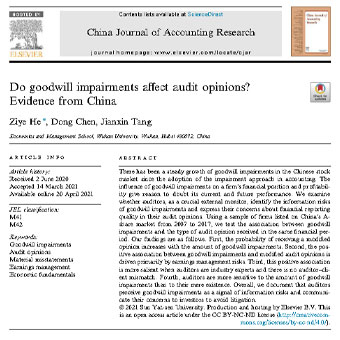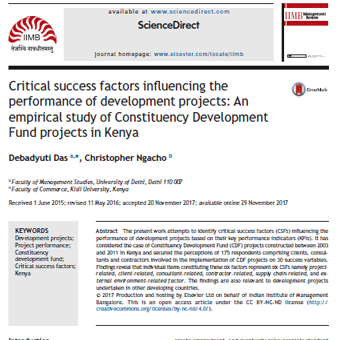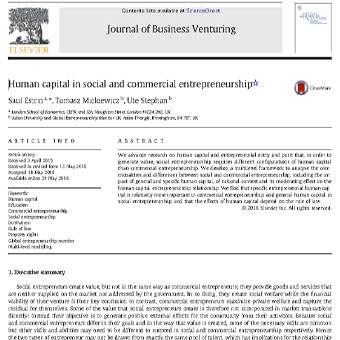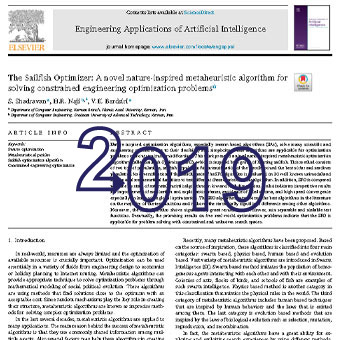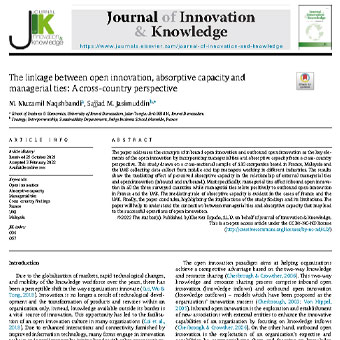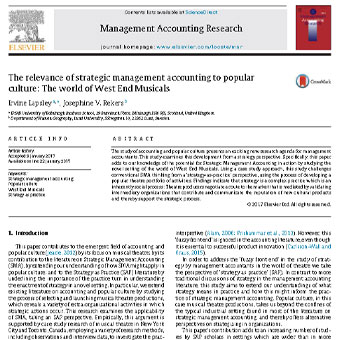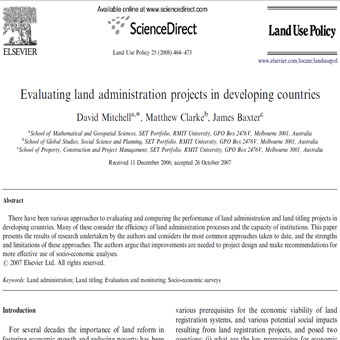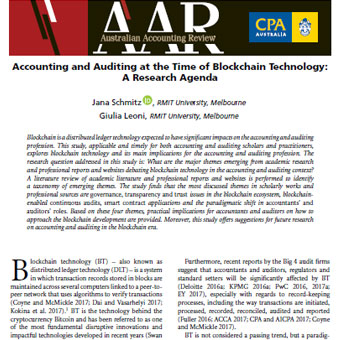عنوان فارسی مقاله:تأثیر نقدینگی، حاکمیت شرکتی و رقابت پذیری بر عملکرد مالی: تحلیل تجربی شرکت های قند در کنیا
چکیده
شواهد تجربی نشان می دهد که چشم انداز کنیا ۲۰۳۰ ممکن است محقق نشود زیرا این کشور ممکن است نتواند به رشد سالانه پیش بینی شده ۱۰ درصدی تولید ناخالص داخلی دست یابد. در حالی که ادبیات عملکرد مالی نوسانی را در شرکتهای قند نشان میدهد، یافتههای قبلی سهمی در نقدینگی، حاکمیت شرکتی و رقابت بر عملکرد مالی شرکتهای قندی را هدف قرار ندادهاند. عملکرد مالی ضعیف شرکتهای قند کنیا باعث شده است که آنها در مجموع بیش از ۱ میلیارد دلار در سال ۲۰۱۴ بدهی سنگینی داشته باشند. هدف این مطالعه تعیین تأثیر نقدینگی، حاکمیت شرکتی و رقابت بر عملکرد مالی شرکت های شکر در کنیا اهداف خاص تعیین تأثیر نسبتهای پوشش بدهی جاری نقدینگی شرکت، درصد هزینههای هیئت مدیره و هزینههای عملیاتی، هزینههای تولید در هر تن بر عملکرد مالی شرکتها در کنیا بود. جامعه هدف پژوهش پنج شرکت قند بود که نمونه گیری سرشماری انجام شد. دادههای ثانویه شامل دوازده سال از سال ۱۳۸۴ تا ۱۳۹۵ است. برای این مطالعه از طرح پژوهشی گذشتهنگر مقطعی استفاده شد. تست های تشخیصی برای شناسایی پایایی و اعتبار داده ها بود. در تحلیل از همبستگی پانل و رگرسیون خطی چندگانه استفاده شد. نتایج برآورد نشان داد که بین حاکمیت شرکتی، رقابت پذیری، سن شرکت و کارایی مدیریت اثر منفی وجود دارد. اندازه شرکت تأثیر مثبت داشت، در حالی که; سیاست پولی بر عملکرد شرکت تأثیر منفی داشت. نتایج رگرسیون پانل اثرات ثابت نشان می دهد که اثر بین نسبت پوشش بدهی های جاری و عملکرد مالی منفی در ۰٫۰۵۲- = ۰٫۳۵۰ – بود. و از نظر آماری در سطح معنی داری ۵ درصد غیر معنی دار است است. ثانیاً، نتایج مطالعه نشان داد که حاکمیت شرکتی، اثر منفی و معنی داری بر عملکرد مالی با ۰٫۰۶۶- = ۰٫۰۴۴ – = داشت. نتایج مطالعه همچنین نشان داد که رقابت پذیری، به عنوان نماینده هزینه های تولید شرکت در هر تن، از نظر آماری دارای اثر منفی قابل توجهی بر عملکرد مالی شرکت با = ۰٫۳۰۸-، ۰٫۰۰۰ – = است. این مطالعه در نظر گرفتن و برنامه ریزی نقدینگی تامین مالی و نیاز شرکت های شکر به افزایش جریان نقدی عملیاتی خود را برای تاثیر مثبت بر عملکرد مالی آنها توصیه می کند. علاوه بر این، شرکت های شکر باید هزینه های تولید خود را بهینه نگه دارند زیرا هزینه های بالا عملکرد مالی آنها را نفی می کند. علاوه بر این، شرکت های شکر باید هزینه های هیئت مدیره و هزینه های عملیاتی را برای تقویت بخش و موقعیت مالی شرکت کاهش دهند. یافتههای این مطالعه ممکن است به توسعه چارچوب سیاستی در مورد عملکرد مالی کمک کند تا بازیگران مختلف شرکتهای شکر را برای بهبود عملکرد مالی راهنمایی کند و به مجموعه دانش موجود برای محققان آینده در مورد نقدینگی، حاکمیت شرکتی و رقابت شرکتهای شکر کمک کند.
- لینک دانلود فایل بلافاصله بعد از پرداخت وجه به نمایش در خواهد آمد.
- همچنین لینک دانلود به ایمیل شما ارسال خواهد شد به همین دلیل ایمیل خود را به دقت وارد نمایید.
- ممکن است ایمیل ارسالی به پوشه اسپم یا Bulk ایمیل شما ارسال شده باشد.
- در صورتی که به هر دلیلی موفق به دانلود فایل مورد نظر نشدید با ما تماس بگیرید.
 متن به فارسی | ترجمه مقالات و متون علمی | ترجمه و دانلود مقالات و انواع متون علمی و ادبی و پذیرش سفارش ترجمه
متن به فارسی | ترجمه مقالات و متون علمی | ترجمه و دانلود مقالات و انواع متون علمی و ادبی و پذیرش سفارش ترجمه
